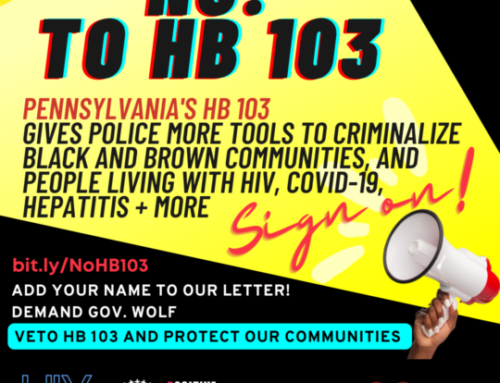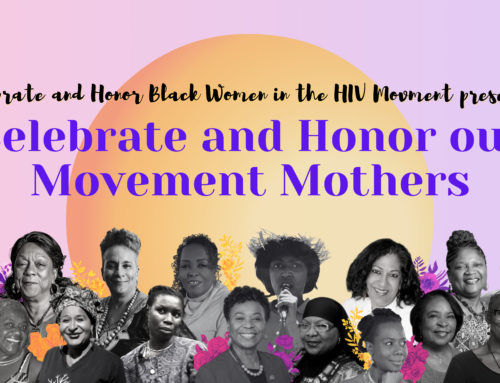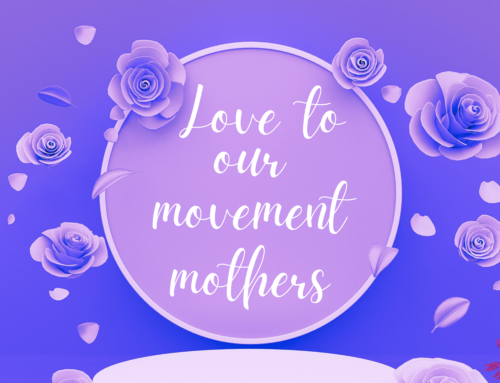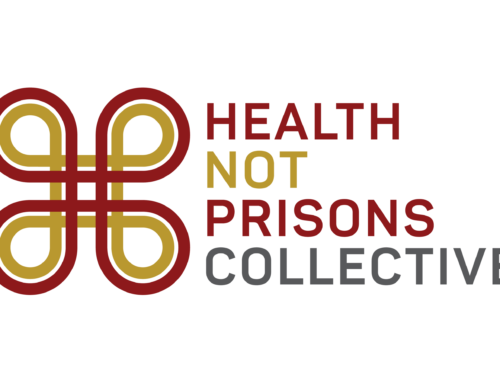**FOR IMMEDIATE RELEASE**
Contact: Ken Pinkela, ken.pinkela(at)seroproject.com, or Jennie Smith-Camejo, jsmithcamejo(at)pwn-usa.org
HIV Is Not a Crime III Training Academy’s Program Paves the Path for Getting to Zero Prosecutions
The just-released program includes six plenaries and 25 breakout sessions from nearly 80 presenters, majority people living with HIV, addressing topics ranging from how legislation moves behind the scenes to how to support survivors of HIV criminalization, and a special Black United Leadership Institute.
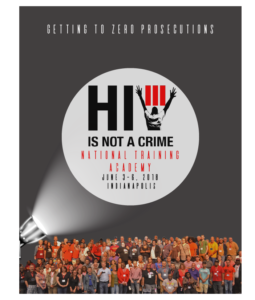 May 25, 2018: One week from today, people living with HIV, advocates, activists, attorneys and lawmakers working on HIV criminalization reform will begin gathering at IUPUI in Indianapolis, as the third HIV Is Not a Crime Training Academy kicks off with a special Black United Leadership Institute (BULI). Over the course of three days, 50 HIV criminalization reform advocates of African descent will have an opportunity to deeply examine the effects of criminalization on Black people and how the HIV criminalization reform movement connects to larger efforts to end racist policing practices and mass incarceration. Sunday, June 3, the BULI participants will be joined by another 200 advocates, hailing from at least 30 states, Puerto Rico and six countries in North, Central and South America and Europe, at the opening of HIV Is Not a Crime III (HINAC), which is co-organized by the SERO Project and Positive Women’s Network – USA.
May 25, 2018: One week from today, people living with HIV, advocates, activists, attorneys and lawmakers working on HIV criminalization reform will begin gathering at IUPUI in Indianapolis, as the third HIV Is Not a Crime Training Academy kicks off with a special Black United Leadership Institute (BULI). Over the course of three days, 50 HIV criminalization reform advocates of African descent will have an opportunity to deeply examine the effects of criminalization on Black people and how the HIV criminalization reform movement connects to larger efforts to end racist policing practices and mass incarceration. Sunday, June 3, the BULI participants will be joined by another 200 advocates, hailing from at least 30 states, Puerto Rico and six countries in North, Central and South America and Europe, at the opening of HIV Is Not a Crime III (HINAC), which is co-organized by the SERO Project and Positive Women’s Network – USA.
The theme of this year’s HINAC is “Getting to Zero Prosecutions.” A play on the oft-used term “getting to zero” for local and state plans to reduce HIV incidence, the idea is that there are many ways to end, reduce or mitigate the impacts of HIV criminalization, only some of which involve actually changing existing laws. Victories may also look different from place to place.
“Some states, like Texas, don’t have HIV-specific laws but still actively use general assault laws to criminalize even acts that carry no risk whatsoever of HIV transmission,” explained Tami Haught, organizing and training coordinator for the SERO Project and coordinator of HINAC, who helped lead the successful 2014 effort to change Iowa’s laws. “So fighting HIV criminalization will look different from Indiana, where there are HIV-specific laws on the books. North Carolina advocates worked with the department of health and county health directors to modernize their public health codes. In some states, we need legislators to champion our issue. In others, we may be educating prosecutors and judges. In Mexico, the supreme court very recently found the HIV criminalization laws in the state of Veracruz to be unconstitutional. As advocates, we have to be ready to explore all the options and also understand that sometimes larger change happens in smaller steps over years.”
In recognition of the many forms criminalization takes, its disparate impacts on marginalized communities and the many ways advocates can address it, the program of HINAC III will celebrate successes, explore continuing challenges and dive deeply into the areas where change can happen: state legislatures, courtrooms, prosecutors’ offices, media and within the HIV community itself. 25 breakout sessions will provide a combination of training in concrete skills for advocates working on HIV criminalization reform and opportunities for networking, strategizing and sharing best practices. The six plenary sessions will look at the ways criminalization shows up, its effects on individuals and communities, and what advocates need to understand to make sure their efforts are successful and inclusive. The full program can be viewed online here.
Today (May 25) is the final day to register for HINAC III with on-campus lodging. Registration without lodging will remain open through May 31. Register here.
The plenaries for HINAC III–all of which will be livestreamed on Facebook Live by Mark S. King–are:
Plenary 1:
- Part 1: Criminalization Survivors’ Panel, Monique Howell, Ken Pinkela, Robert Suttle, Shayne Tabor, Kerry Thomas (via phone)
- Part 2: Forging the Path to Victory in California! Effective Strategies to Build Support, Counter Opposition and Pass HIV Criminalization Reform, Naina Khanna, Brad Lundahl, Arneta Rogers, Scott Schoettes, Andrew Spieldenner
- Part 3: Modernizing North Carolina’s HIV Criminal Law: A Successful Campaign and Next Steps, Christina Adeleke, Terl Gleason, Kara McGee, Lee Storrow, Billy Willis
- Part 4: Behind the Scenes: What Happened in the Caucus, Rene Garcia, Rep. Jon Hoadley, Rep. McCrostie, Sean Strub
Plenary 2: Meaningful Involvement of People with HIV, Leadership and Accountability: Looking at Organizations and Community Groups, Barb Cardell, Arianna Lint, Malcolm Reid, Andrew Spieldenner
Plenary 3: Being the Change You Seek in the Face of Resistance, Kamaria Laffrey, Allison Nichol
Plenary 4: Towards Liberation: Advancing a Racially Just HIV Criminalization Reform Movement, Maxx Boykin, Marco Castro-Bojorquez, Kenyon Farrow, Naina Khanna, Waheedah Shabazz-El, Toni-Michelle Williams, BULI participant
Plenary 5: From Mexico to Colombia: The Latin-American Fight Against Criminalization, Gonzalo Aburto, Leonardo Bastidas, Ricardo Hernandez Forcada, Brisa Gómez, Carlos Ruiz Lopez, Dr. Alfredo Daniel Bernal Méndez, Paola Marcela Iregui Parra, Germán Humberto Rincón Perfetti, Dr. Patricia Ponce
Plenary 6: Leave No One Behind: Intersections of HIV Criminalization with Sex Work, Drug/Syringe Use, and Immigration, Chris Abert, Marco Castro-Bojorquez, Zaniya James, Tiffany Moore, Cris Sardina
View the full program online here.
###



